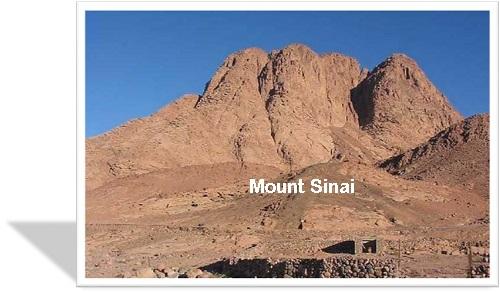That Practical Old Testament
That Practical Old Testament

Why still use something old once you have received something new and better? Many Christians are asking themselves this with regard to the Old Testament. God’s revelation in the New Testament surpasses that of the Old Testament. As you get to know Jesus better and more directly in the New Testament, what use can the Old Testament then be to us?
It cannot be denied that there are some wonderful stories in the Old Testament, as well as prescriptions and rules containing much wisdom for everyday life. But would we not benefit more from it if we were able to apply those commandments and rules directly to our own situation? Would the Old Testament not be more useful if it taught clearly that we are saved by faith and grace alone, and not through obedience to God’s law? Would the Old Testament not stand closer to us if Jesus Christ was brought forward in a less veiled manner?
In reaction to such questions you might attempt to defend the Old Testament by, for example, pointing out how much of the future Redeemer is already displayed in the Old Testament. Or you might try to prove that the Old Testament also already speaks of salvation through God’s grace. While that is a good and justifiable course, it does not take away the fact that such things are, indeed, noted more explicitly in the New Testament.
In this article I would like to choose a different approach. I am not going to do my best to prove how many beautiful things from the New Testament are already in the Old. On the contrary, I wish to claim your attention for what is not written in the Old Testament. These past years, I have often discovered how good it is to simply acknowledge these things. Instead of this leading to the Old Testament distancing itself from me, I actually started valuing it even more.
Disappointments⤒🔗
I would like to explain this by using a few examples. The first example is God’s revelation on Mount Sinai and Israel’s experiences throughout the centuries following. When the Israelites arrived at Mount Sinai, they were told that they were God’s treasured possession. They were to become a kingdom of priests, a holy nation, although God did emphasize that this would only become reality if they took his words to heart and kept his covenant (Ex. 19:5-6). Subsequently, the Israelites were given a great number of commandments and prescriptions. They were privileged above all other nations: God set up his earthly throne, in the tabernacle right in the middle of their camp, and also supplied them with priests and sacrifices to support them.
Did they then already realize that the commandments and sacrifices could not truly save them? They did know that they could only exist as God’s people because of God’s mercy. Had they not made themselves a golden calf, a few weeks after the recital of the Ten Commandments? If Moses had not thrown himself into the breach for them, God would have destroyed them then and there (Ex. 32). Nevertheless, they were allowed to move onward to the promised land, with God himself in their midst, based solely on the fact that the Lord is a God who is loving and compassionate, patient and faithful, a God who forgives sins (Ex. 34:6-7). All this they could have known, but this does not imply that they also had a clear view of how God himself, through all those commandments, was leading them to Jesus Christ (cf. Gal. 3:23-24), or that God himself had to give them the obedience to his commandments. Paul wrote that, centuries later, in Phil. 2:13: “...for it is God who works in you to will and to act in order to fulfill his good purpose”. At Sinai, Moses did not yet tell them that. For centuries, therefore, the Israelites lived with the commandments, the priests and the temple services given to them at Mount Sinai. That long history is one of continual disappointments and failures, enough to cause despair.

Self-chosen Swamp←⤒🔗
Reading the books of the prophets can give you the same experience. You come across some beautiful prospects and encounter prophesies in which you can clearly point out the fulfillment in the life of Jesus Christ. But even when you lay down all the prophesies alongside one other, you still do not see an unambiguous picture of what Jesus was to be later, and what he came to do. There are too many images beside one another for that. More probably, you may feel that many prophesies do not appear to be directly about salvation by Jesus. Most prophesies speak of sin, judgment and destruction, yet all those stories of Israel’s unfaithfulness and all those prophesies about Israel’s downfall are still exceptionally valuable. God has taken the time to teach us something that we find hard to accept: God himself must personally pull us out of our self-chosen swamp. There is salvation, but from the position of one’s own downfall. We must acknowledge: we should have been the ones to hang on the cross of Calvary. We can only live because Christ took over our destruction from us. The Old Testament does not paint all the finishing touches of Christ’s work for us. It does clearly show how necessary God’s intervention in his Son was. I have yet to meet a Christian who can do without that lesson by God, given to us in that lengthy Old Testament.
Meaningless←⤒🔗
The second example of a part of the Old Testament in which many things are not being said, is the Book of Ecclesiastes. The Preacher, or Teacher, starts by stating that all is meaningless (Eccl. 1:2). At the end of his reflections he hardly seems to have made any progress: “Meaningless! Meaningless!” says the Teacher. “Everything is meaningless!” Can he tell us no more than that all is meaningless? How sad it would be if Ecclesiastes was the only book in the Bible! It leaves so much undiscussed! Not denying that, I would claim that it is a good thing that this book is in the Bible. Firstly because very many people recognize themselves in this. They appreciate the Teacher’s carefree honesty. He does not make things any better than they are. You cannot discover the meaning of life, at least, not if you look around you in the manner of the Teacher, with your own eyes and thinking with your own mind. At the same time, the Teacher is doing something similar to what we see in the long history of Israel and all those prophets of doom, namely, showing us that it must come from the other side. Not only our salvation, but also the insight into the meaning of our existence. That is a lesson that we, despite all our learnedness, are still in need of learning.
The Teacher does not give a clear revelation of the meaning of life. His book does show the way in which his readers can cope, very practically. That is “Fear God and keep his commandments” (Eccl. 12:13).
Practical←⤒🔗
This brings us to the next point: the Old Testament is a very practical book. I would like to explain that by using two examples: Genesis 1 and Job. When opening the Bible at Genesis 1, you would most likely expect an account of the origin of all things. Approaching the text with questions of today in mind, you will then soon be disappointed. Genesis 1:2 says that there was darkness and water, before God created light. The text does not tell us in so many words where they came from. There is talk of a ‘vault’ that divides the waters and appears to be ‘sky’ (Gen. 1:6-8). But how is that to be understood? How does that relate to what we ourselves observe above us? Genesis 1:14-18 speaks extensively of the creation of planets and stars. We would like to know what the relationship is between the light they give and the light that was there before the fourth day, but we read nothing about that. Nor is the question answered concerning the millions of years of which astronomers speak.
It may sound strange, but it is this peculiarity which, in fact, illustrates the practical character of Genesis 1. The chapter’s foremost purpose is apparently something different from answering the theoretical question of the origin of all things. What the Bible’s first chapter particularly shows us is that God gave man a place to live, in a safe environment and with everything he needed. It also shows that our goal should be that we dedicate the days of our life to God. For the whole story works towards a climax that is formed by the seventh day, which is blessed and sanctified by God. Genesis 1 shows us that we need not fear the darkness or the water. Neither need we fear the heavenly bodies, which were idolized as divinities by heathens in those days. Those were all matters touching directly on the Israelites’ everyday life practice.1

Why?←⤒🔗
The Book of Job poses a question that many people are concerned with. It is the question of the meaning of suffering: why someone should suffer who does not in the least seem to deserve it? Job himself does not get to hear why all this suffering happened to him. We, the readers of the book, know more. For we, as opposed to Job, know from Job 1 and 2 what took place in heaven between God and Satan. Yet we still have unanswered questions. Could God really not have responded differently to the provoking words of Satan, instead of dealing Job such a blow? In his answer to Job, God illustrates his great power by pointing out fearsome creatures like the hippo and the crocodile (Job 40-41), but the question why he created such menacing animals is not entered into.
The book of Job does not tell us all we would like to know about the meaning of suffering and the role of evil in creation. It does show us the practical and passable route. That is the route of awe and reverence for God (see Job 28:28; 40:1-14; 42:1-6). Job calls upon people, both then and now, to put their questions into the safekeeping of that awesome God. That is the route along which we, as human beings living under God’s throne, are truly able to move onward.
Signpost←⤒🔗
The Israelites in the times of the Old Testament often had different problems to deal with than we do. Not all that is applicable to them in their everyday life is directly applicable to ours. Indeed, the Old Testament is so practical because it enters into what was going on then. At the same time, that is what makes God’s revelation in the Old Testament so beautiful. You see how he is constantly busy, with endless patience, seeking his people. He addresses them and gives them the help they need. Never too little, but also never so much that it overrules them. His word is truly a lamp for the feet, a light for the path (Ps 119:105). It may not tell you all you would like to know; but it gives you enough to walk safely along the route that God wishes to walk with you.
That is also true of the words of the prophets. Through the prophecies, God was speaking first and foremost to the people in the situation in which they found themselves at that time. In that situation, He showed them the way. He took the time to teach his people, in the ups and downs. Step by step, he was making it more and more clear that it really all had to come from him, from his redemption, given to us while we did not deserve it. The Old Testament displays how God truly walks into history to seek people and, with great patience, brings them where they ought to be: with him and with the great King of David’s house (cf. Hosea 3:5).
There is much more to be said about the practical use of the Old Testament for Christians today. I am thinking, for example, of what my colleague from the Theological University of Apeldoorn, Prof. Peels wrote about the height, depth, width and length of the Old Testament Divine revelation in comparison to that of the New Testament his book Shadow Sides: The Revelation of God in the Old Testament (published by Paternoster Press in 2003).
In short←⤒🔗
The Old Testament displays how God really walks into history, seeking people and, with great patience, bringing them to where they ought to be: with him and with the great King of David’s house. You must take the Old Testament as it is, in what it offers and in what it does not offer. If you do that, you will start to appreciate it more and more.2

Add new comment